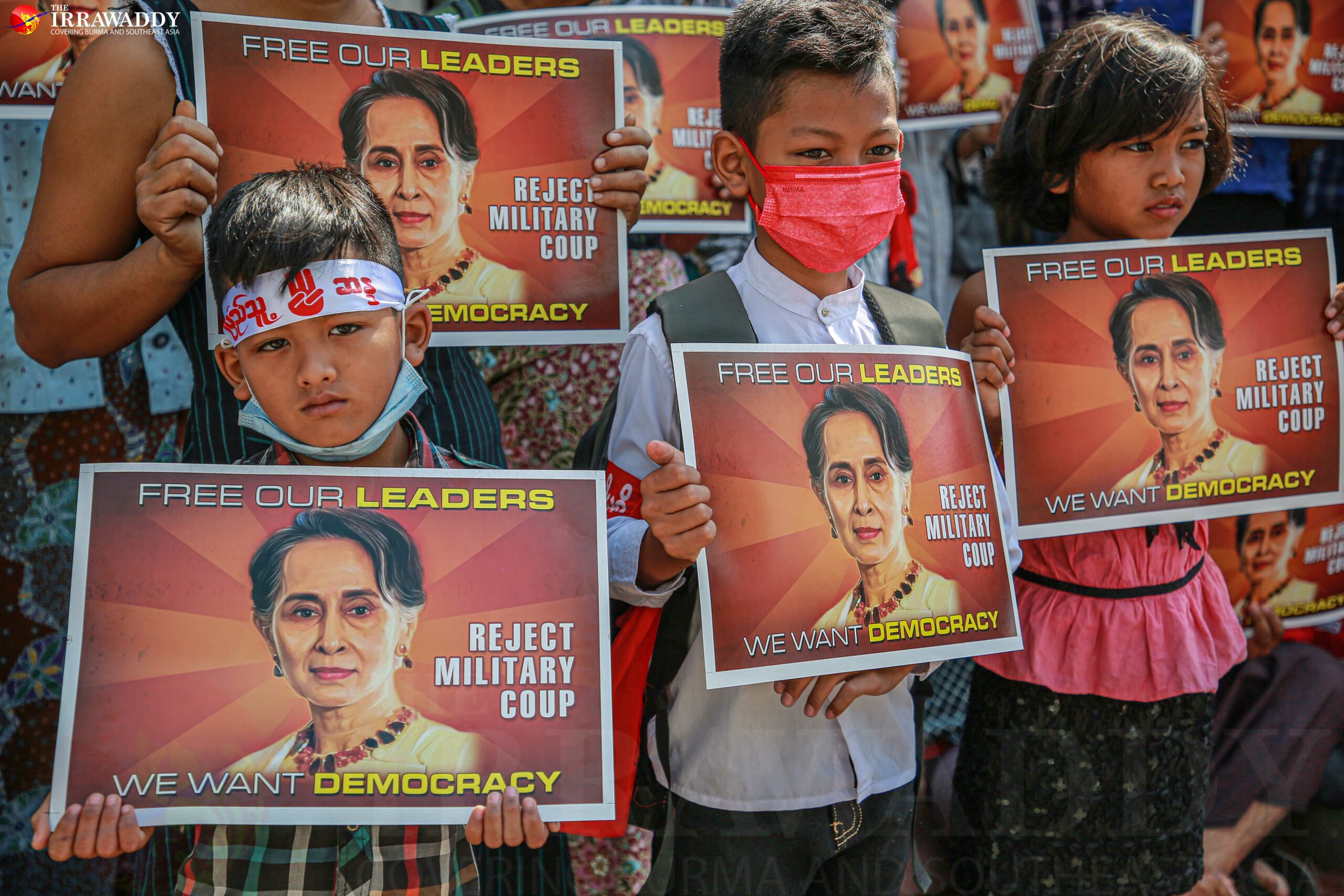History shows that when a Myanmar military regime holds an election, it will likely be neither free nor fair. It also tells us that when the vote is free, the result may well be disregarded. It’s a fact of which Myanmar’s neighbors and the rest of the international community must be mindful.
The previous military regime held two general elections, in 1990 and 2010. It ignored the results of the former, and rigged the latter.
The 1990 election organized by the junta, known as the State Law and Order Restoration Council, was free and fair. For that very reason, the National League for Democracy (NLD) led by Daw Aung San Suu Kyi won a landslide victory. The junta, which had itself organized the election, simply ignored the result because it had not envisioned an NLD win.
The regime didn’t stop at annulling the election result, however. It went further, arresting hundreds of elected members of Parliament and throwing them behind bars for lengthy terms of imprisonment.
Two decades later, the same military regime held another election. But not only was the 2010 vote not inclusive—with most of the main political parties, including the NLD and other ethnic parties sitting it out, condemning the electoral process as undemocratic—it was also widely dismissed as rigged. The election took place on Nov. 7, 2010, just a week before Daw Aung San Suu Kyi herself was released from house arrest. Having gone as expected—with the military’s electoral proxy, the Union Solidarity and Development Party (USDP), claiming victory—the rigged result was honored.
The elections held in 2015 under the semi-civilian government led by President U Thein Sein, a former general, met international standards. Fortunately, the result was honored, allowing the winning party, the NLD, to form Myanmar’s first civilian government since 1962, ending 53 years of absolute and semi-military dictatorship.
The integrity of the most recent election, held in November 2020, was not questioned by international or domestic election observers, or by the majority of the many political parties that contested the election. (The exceptions, unsurprisingly, being the USDP and its allied parties.) The NLD again emerged as the resounding winner, and again confounded the military’s expectations. The result was the military coup of Feb. 1.
Of the four general elections held in Myanmar in the past three decades, three were either rigged or overturned by force of arms.
Hence, there is simply no reason to believe any promise of a free and fair election made by the latest coup leaders, led by Senior General Min Aung Hlaing.

Somehow, the Association of Southeast Asian Nations (ASEAN) appears willing to swallow this hollow promise. Perhaps we shouldn’t be surprised; protecting ruthless generals in Myanmar is an ASEAN tradition.
On Tuesday, Indonesia took the first step down that traditional path of knowingly ignoring the facts in order to help the coup leaders in Myanmar. According to reports, Indonesia initiated a push to have ASEAN back an action plan that would seek to hold the military to its promise to organize a “fair and inclusive” new election.
Such a move can only be described as outrageous.
Right after the report emerged, a large group of protesters—most of them young—mobilized and held a demonstration on Tuesday outside the Indonesian Embassy in Yangon. On Wednesday, even larger crowds continued to protest, not only at the Indonesian Embassy, but also at those of other ASEAN countries, including Malaysia, Thailand and Singapore.
Indonesian Foreign Minister Retno Marsudi planned to travel to Naypyitaw to meet the coup leaders but later canceled, perhaps fearing she would be met by crowds of protesters.
Instead, the foreign minister of Myanmar’s military regime, U Wunna Maung Lwin, flew to Bangkok to meet Retno. It was the first in-person meeting between the minister of the military regime and his counterparts from Indonesia and Thailand.
ASEAN’s reputation has for years been tarnished by its willingness to protect Myanmar’s generals as they oppress their own people. In the past, the regional grouping shielded the military regime from any criticism from the West and the UN over the generals’ political persecution and human rights violations. And as they have in the past, Western countries led by the US have once again shown strong solidarity with the Myanmar people, demanding the military regime release the country’s detained leaders, respect the election result and restore democracy
US President Joe Biden has already imposed sanctions on the coup leaders, including Snr-Gen Min Aung Hlaing, who is the main culprit in this power seizure, heading the military regime’s ruling organ, the State Administrative Council.
For ASEAN, however, it’s a case of history repeating itself. ASEAN is unlikely to stand together with the people of Myanmar as they courageously and rightly protest against the military dictatorship. Instead, ASEAN leaders are likely to support the plans of the new military regime, which has no interest whatsoever in adhering to democratic norms.
It is, after all, their undemocratic and immoral tradition.
It is also further proof that ASEAN is politically and morally immature—just like the generals in Myanmar. These birds of the same feather will always flock together.
Myanmar’s people—including, significantly, its millions of young people—deserve the full support of the world and their regional neighbors. The duty of the international community is clear: to stand with the people of Myanmar and to refuse to help the military dictatorship. In other words, to be compassionate, righteous and democratic.
You may also like these stories:
Myanmar Medics in Hiding as Regime Targets Hospital-Led Disobedience Movement
Myanmar Military Targets Striking Civil Servants
UK and Canada Sanction Myanmar’s Coup Leader and His Subordinates

















